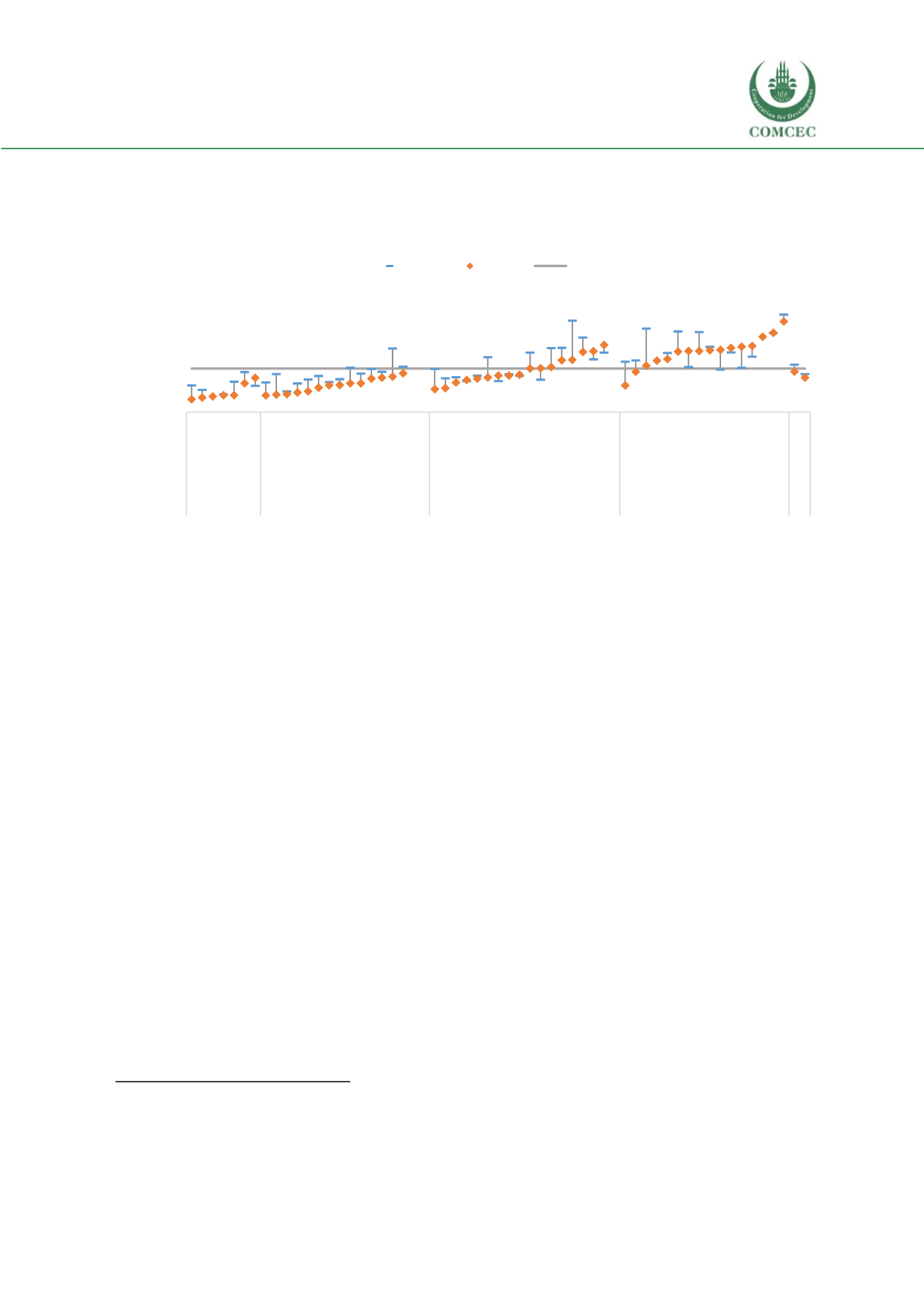

Education of Disadvantaged Children in OIC:
The Key to Escape from Poverty
47
ratio was found to be 50:1 in public schools while it was 28:1 in private schools.
140
In the Northern
region of the country the pupil teacher ratio was 62:1 while in the Central region it was 31:1.
141
Figure 17 Pupil-teacher ratio in primary education (headcount basis)
Note: Data is obtained from UNESCO Institute for Statistics' Database. To represent 1990s, for each country, the
earliest value available in the database from 1990s has been used. For 2010s, for each country, the latest value
available for 2000s has been used. Hence in a few cases latest value available could be from a year earlier than
2010. OIC average is calculated using these values for the countries with data available. World averages are for
the years 1990 and 2014 and obtained directly from the database.
An adequate teacher supply is related to the member countries’ income.
None of the high-
income or upper middle-income member countries have a pupil teacher ratio greater than 30
while countries with pupil teacher ratios greater than 30 are all lower middle-income or low-
income countries. Indeed a negative correlation could also be seen between member countries’
GDP per capita and teacher supply as proxied by the pupil teacher ratio (Se
e Figure 18Panel A).
Hence the higher the member country’s income the lower the pupil teacher ratio at the primary
level. This is also the case for non-OIC countries.
140 Wane and Martin (2013)
141 Wane and Martin (2013)
0
10
20
30
40
50
60
70
80
Kuwait
Brunei Darussalam
Saudi Arabia
Qatar
Bahrain
Oman
United Arab Emirates
Malaysia
Maldives
Lebanon
Azerbaijan
Suriname
Iraq
Kazakhstan
Albania
Turkey
Jordan
Guyana
Algeria
Gabon
Iran (Islamic Republic of)
Libya
Turkmenistan
Tunisia
Indonesia
Uzbekistan
Tajikistan
Egypt
Palestine
Kyrgyzstan
Syrian Arab Republic
Morocco
Nigeria
Yemen
Djibouti
Mauritania
Bangladesh
Cameroon
Côte d'Ivoire
Pakistan
Sudan
Sierra Leone
Comoros
Senegal
Somalia
Niger
Togo
Gambia
Burkina Faso
Mali
Uganda
Afghanistan
Benin
Guinea
Guinea-Bissau
Mozambique
Chad
OIC
World
High Income
Upper Middle Income
Lower Middle Income
Low Income
Pupil-teacher ratio in primary education
(headcount basis)
1990s
2010s
30
















